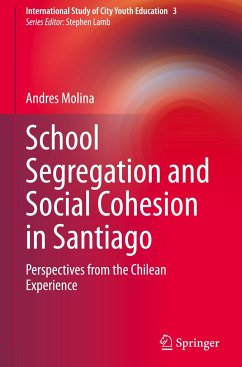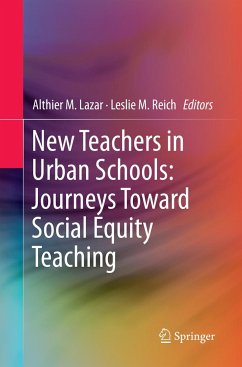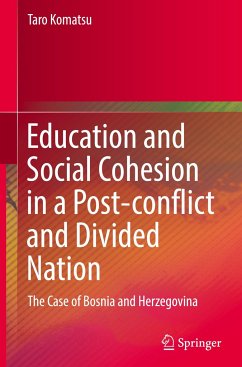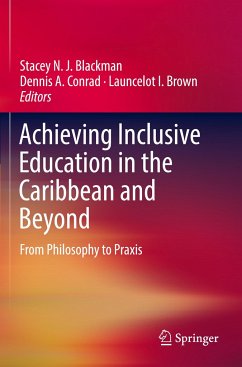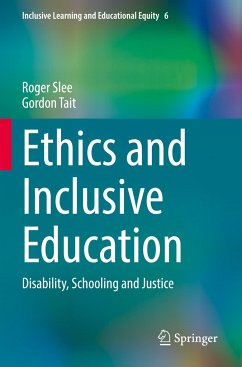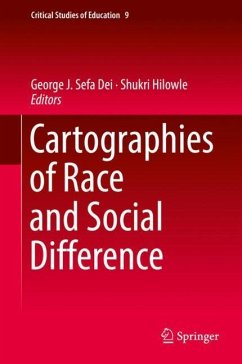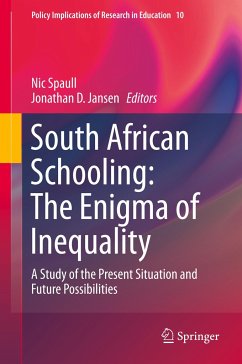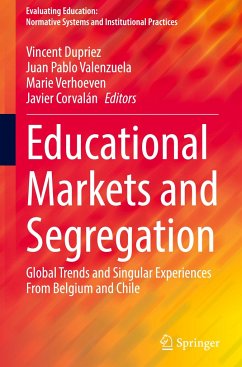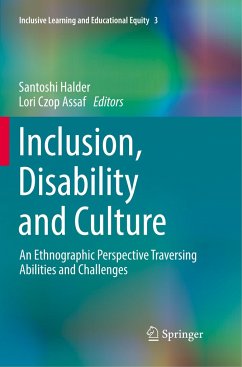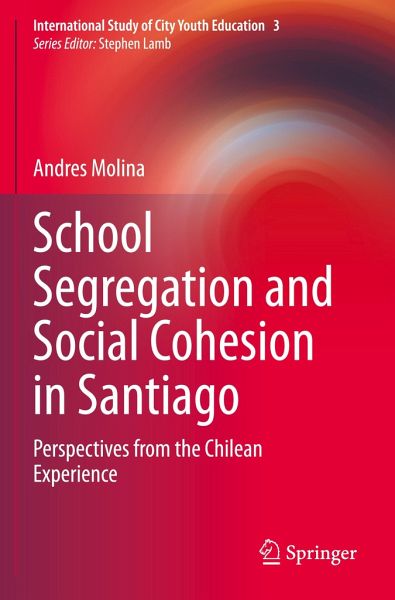
School Segregation and Social Cohesion in Santiago
Perspectives from the Chilean Experience
Versandkostenfrei!
Versandfertig in 6-10 Tagen
91,99 €
inkl. MwSt.
Weitere Ausgaben:

PAYBACK Punkte
46 °P sammeln!
This book examines the consequences of educational segregation from the perspective of social cohesion. It investigates the impact of separating students along socioeconomic lines on student attitudes, dispositions and outlooks considered important for social cohesion as well as on achievement, opening the discussion about the social costs of school segregation.The separation of students based on their social background is a common feature of schooling in many modern systems. This is not only due to the influence of residential segregation but also to the effects of policies promoting educatio...
This book examines the consequences of educational segregation from the perspective of social cohesion. It investigates the impact of separating students along socioeconomic lines on student attitudes, dispositions and outlooks considered important for social cohesion as well as on achievement, opening the discussion about the social costs of school segregation.
The separation of students based on their social background is a common feature of schooling in many modern systems. This is not only due to the influence of residential segregation but also to the effects of policies promoting educational privatisation, parental choice and student academic selection. By recognising the importance of schooling for citizenship and social integration, the chapters in this book explore how the separation of students throughout their school lives can contribute to the division of citizens beyond school, and how social segregation in school systems affect social cohesion more broadly.
By exploring the case of Santiago, Chile, the study is a timely contribution to the understanding of the roots of social division and the role that schools play in creating cohesive societies. The originality of the approach and the evidence presented draw on implications that should be of interest to a wider audience concerned with contemporary discussions on solidarity and its erosion by educational segregation in urban environments.
The separation of students based on their social background is a common feature of schooling in many modern systems. This is not only due to the influence of residential segregation but also to the effects of policies promoting educational privatisation, parental choice and student academic selection. By recognising the importance of schooling for citizenship and social integration, the chapters in this book explore how the separation of students throughout their school lives can contribute to the division of citizens beyond school, and how social segregation in school systems affect social cohesion more broadly.
By exploring the case of Santiago, Chile, the study is a timely contribution to the understanding of the roots of social division and the role that schools play in creating cohesive societies. The originality of the approach and the evidence presented draw on implications that should be of interest to a wider audience concerned with contemporary discussions on solidarity and its erosion by educational segregation in urban environments.





